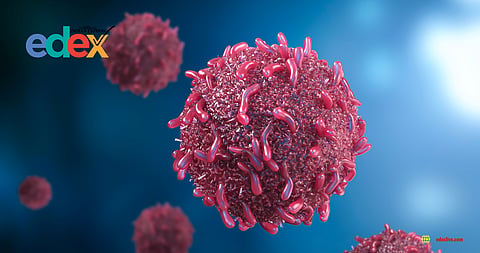

A team from the Indian Institute of Science Education and Research (IISER Kolkata) has developed a strain of "friendly bacteria" designed to combat cancer safely and effectively from within the patient’s body, according to a statement from the institute, reported PTI.
Named ReSET (Reprogramming the Suppressive Environment of Tumour Microenvironment), the project tackles a major hurdle in cancer treatment by targeting T regulatory cells (Tregs), which suppress the body’s immune defences. “Cancer often hides behind special immune cells called T regulatory cells (Tregs), which suppress the body’s natural defence system.
This makes standard therapies like immunotherapy or chemotherapy less effective,” the statement explained. By engineering probiotics to detect tumours and disrupt their suppressive activity, the team aims to reactivate the immune system to fight the disease.
Real-time monitoring system
In parallel, the IISER Kolkata team is developing a detection system to monitor the therapy’s progress in real time. This integrated therapeutic and diagnostic approach, known as theranostics, represents a significant advancement in cancer treatment, combining targeted therapy with real-time tracking to achieve improved outcomes.
Human-centered approach
To ensure the project’s ethical and social relevance, the team has engaged with oncologists, surgeons, cancer survivors, and NGOs. They have also conducted school outreach programs, cancer awareness campaigns, and collaborated with hair donors and patient support groups. These efforts have shaped the therapy to align with real-world needs, emphasising a human-centered approach to innovation.
Potential global impact
The team’s work is not just a laboratory prototype but a proof of concept showcasing India’s potential to lead global scientific innovation. “By targeting the Tregs pathway with engineered bacteria, we hope to bring forward a completely new class of cancer therapeutics, one that could revolutionise the way we treat cancer,” the team said. The approach transforms beneficial microbes into living, targeted medicines that could make cancer treatment safer and more effective.
The 11-member undergraduate team will represent IISER Kolkata and India at the International Genetically Engineered Machine (iGEM) Grand Jamboree 2025, the world’s largest synthetic biology competition, held in Paris this October.
